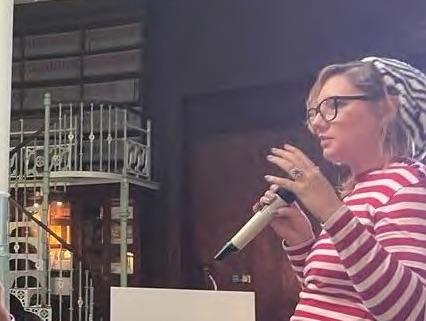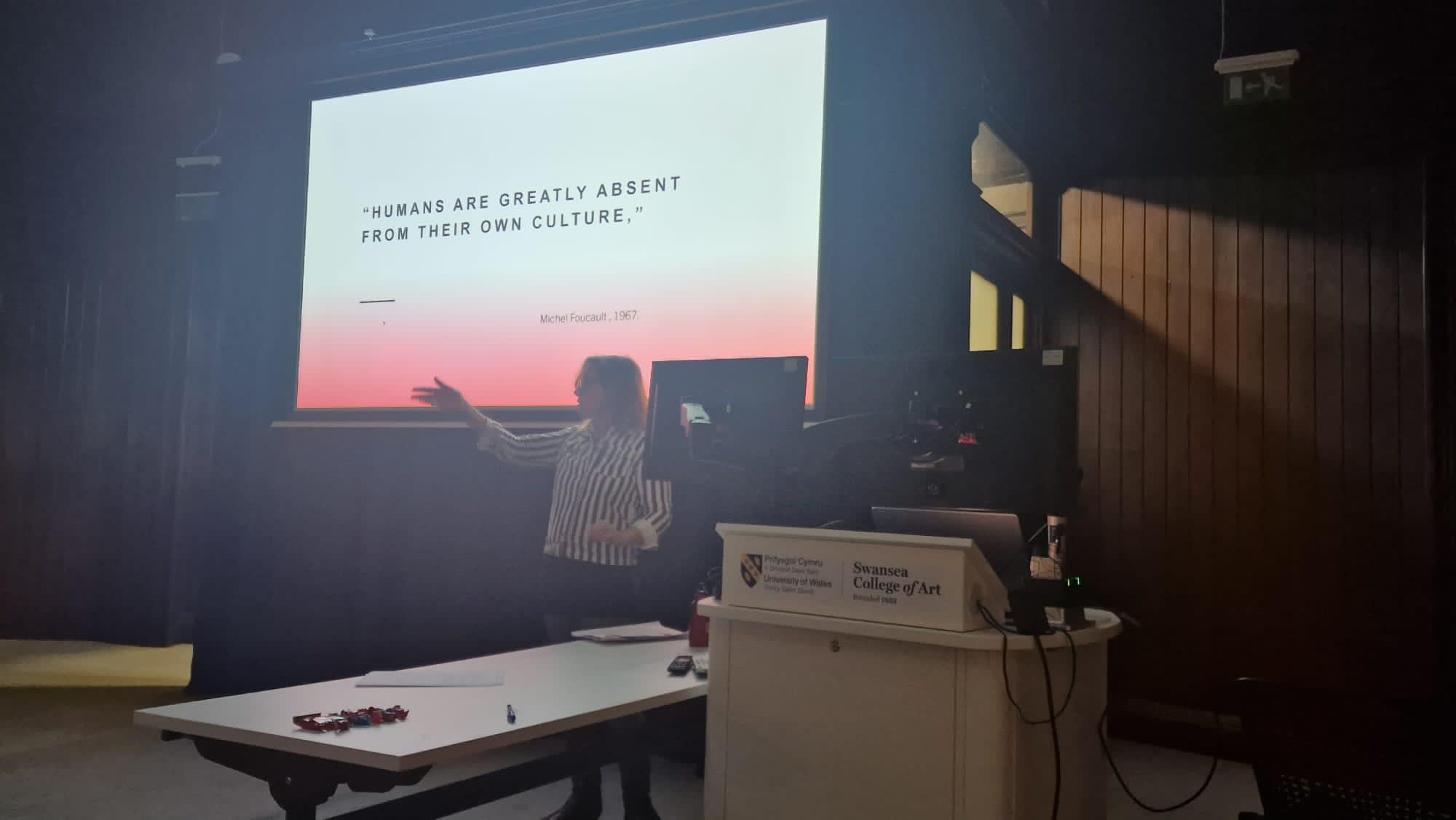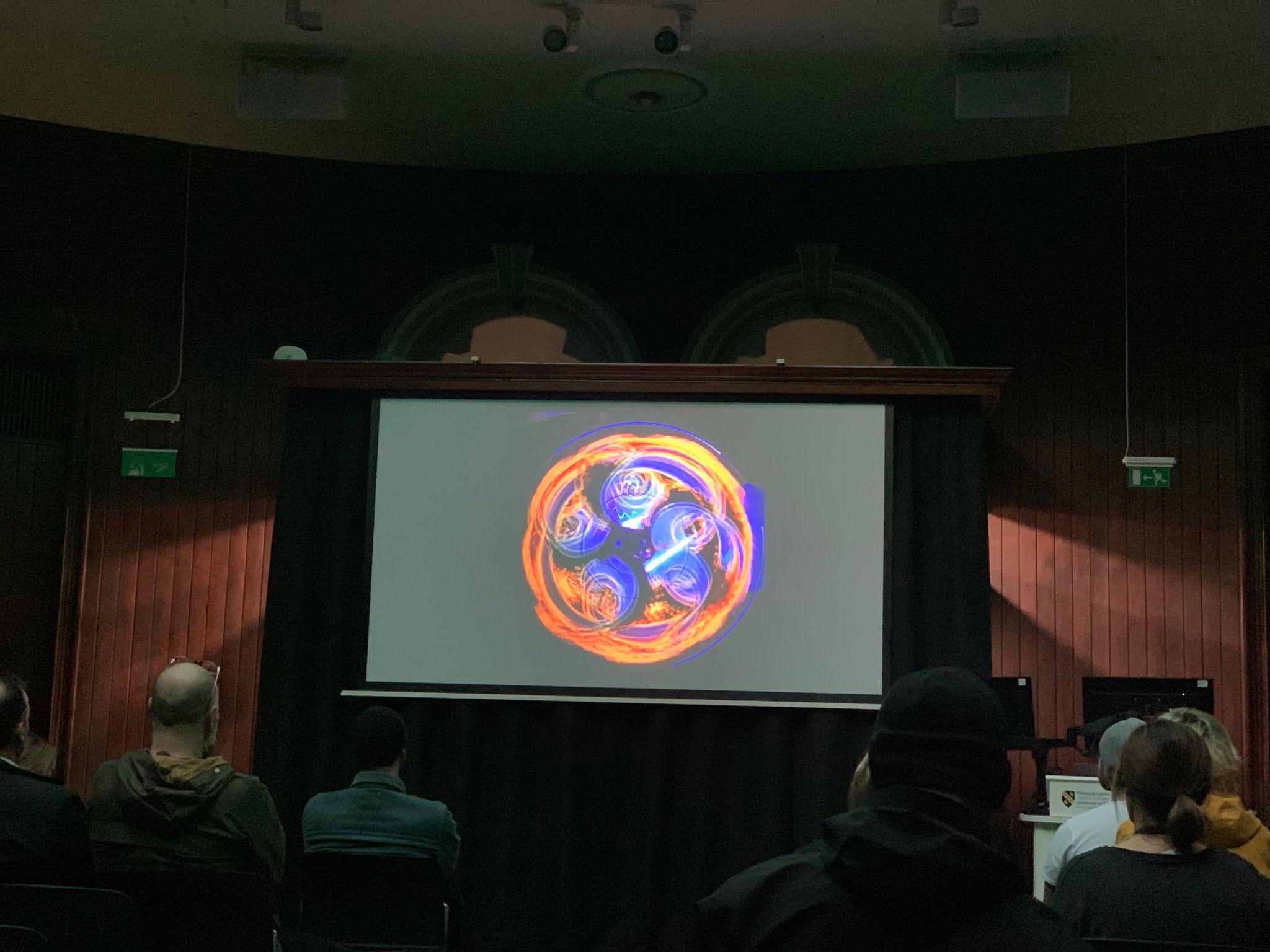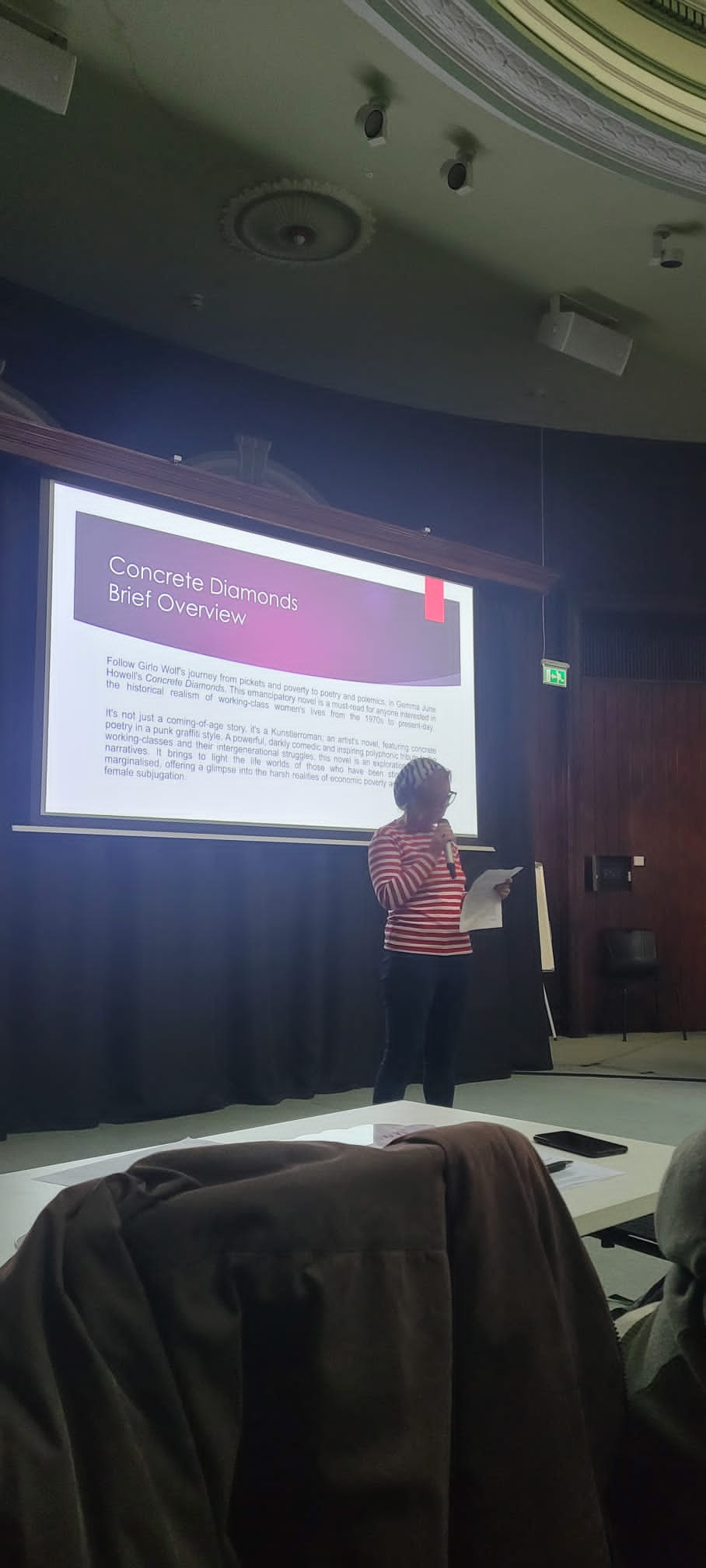Academic Appointments
Associate Lecturer UWTSD | Carmarthen, BA Creative Writing [April 2024].
Featured Industry Expert Swansea University, Dylan Thomas Prize Module [March 2024].
Associate Lecturer UWTSD | Swansea College of Art, ‘The Third Space,’ MA in Contemporary Dialogues [Nov 2023].
Associate Lecturer Swansea University, ‘Writing the Pandemic’ with Prof Owen Sheers [May- Jun 2022].
Associate Lecturer Swansea University, ‘The Third Space: Heterotopias in Public & Private Art.’ [Sept 2020].
Associate Lecturer Swansea University, ‘Fusion Project’ [Apr 2019].
Associate Lecturer Cardiff and the Vale College (CAVC) Cert.HE. Skills for the Workplace [Sept 2017-Nov 2017].
Workshop Leader Merthyr Council, ‘Global Partnerships Project’ [Apr 2015].
Workshop Leader Literature Wales, Dylan Thomas Centenary Boyle Lit Fest [July-Aug 2014].
Associate Lecturer CAVC, Professional Cert. Marketing, [Jan 2011].
Conferences & Presentations
UWTSD | Swansea College of Art
Keynote Speaker 'Are You Sitting Comfortably?' symposium. Presented doctoral research [Oct 2023].
De Montford University, Leicester
Keynote Speaker ‘Scandal ’63 Revisited’ symposium [April 2023].
Kristiana University College, Norway
'Exploring Collective Trauma and Artistic Emancipation: A Literary Analysis' Kristiana University, ‘Artistic Research’ symposium [March 2022].
Doctoral Research
PhD Abstract
As a contribution to feminist epistemology, my PhD research was an emancipatory undertaking, seeking to unearth discrepancies between social ontology and the historical realism of working-class people’s lives. The novel is an experimental, hybrid novel encompassing two distinct literary genres which interlink technically, introspectively, and thematically. The principle narrative is a polyphonic tribute to working-class people of different ages, genders, races, and sexual orientations, living in the margins of post-industrial neoliberal Britain. The principal narrative is then bookended by concrete poetry in a punk graffiti style.
Contemporary History of BritainThis experimental structure not only allows for a deeper, more nuanced exploration of hidden narratives but seeks to draw experiential links concerning economic poverty, stigmatisation and marginalisation developed during crucial periods of social change in the contemporary history of Britain. Inspired by the principles of fusion fiction, my novel has multiple starting points in a variety of narrative voices and literary styles, and it encompasses the poetic to polemic; social realism to magical realism; melodramatic and comedic, all of which not only bolsters character and plot development but also fortifies the novel’s non-conformist message.
Lived Experiences
While tracing the creative becoming of the central character, Girlo Wolf, the story brings to life five generations of familial relationships and is an exploration of the rich and lived experiences, illuminating the past origins and present conditions of discrimination, marginalisation and subjugation of working-class women in the UK.
Full Exegesis
Available to read




